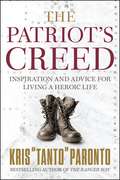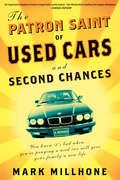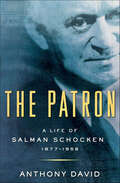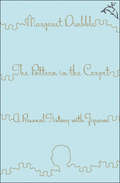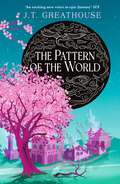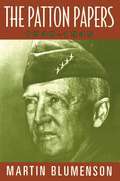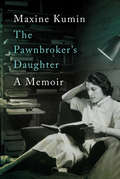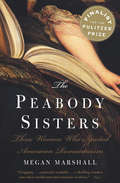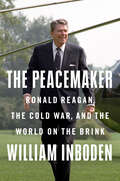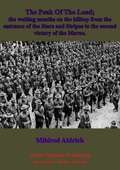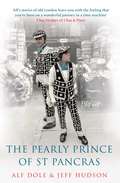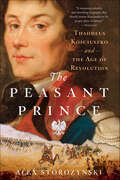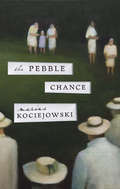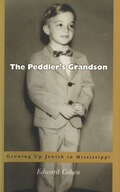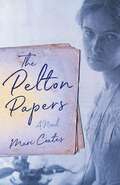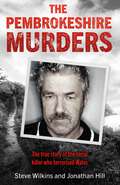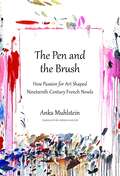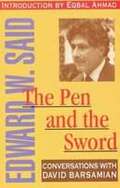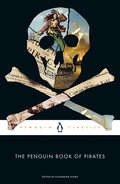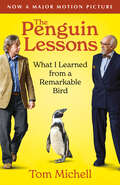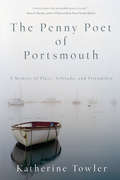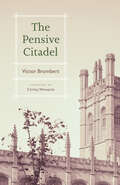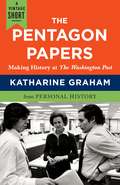- Table View
- List View
The Patriot's Creed: Inspiration and Advice for Living a Heroic Life
by Kris ParontoArmy Ranger and bestselling author Kris Paronto reveals the values and creed shared by special forces for self-improvement and living a purposeful life.When Kris Paronto began talking with civilians about his experiences fighting the terrorist attack on the US State Department Special Mission Compound in Benghazi, Libya on September 11, 2012, he was surprised at how often people told him that the story of his extraordinary battle gave them courage to face tough times in their everyday lives. "The odds were stacked against us that night but the truth is that we refused to quit and we beat them with faith, teamwork, and the principles that were first instilled in me when I joined the Army. You can find those in the Rangers Creed and the Army Values," he says, "and you don't have to be a Special Operations soldier to use them." In The Patriot's Creed, Kris Paronto uses the seven core Army Values that all soldiers learn in Basic Combat Training, and the experiences of other servicemen and women and First Responders, to explain how anyone can improve themselves, the world around them, and live a heroic life. The stakes are dramatic for the brave men and women who put their lives on the line to fight for America, and too many of their acts of courage and honor are unknown. The examples of their persistence and discipline will be inspiring to anyone facing seemingly insurmountable obstacles.At a time of national polarization, Kris Paronto draws attention to values all readers can share and use, and to the honor, integrity and courage of true patriots who have gone to great lengths to protect and serve. They embody the best of us and make Kris Paronto proud to be an American soldier.
The Patron Saint of Used Cars and Second Chances: A Memoir
by Mark MillhoneIn the course of one nine-month period, filmmaker Mark Millhone's youngest son nearly died from birth complications, his father was diagnosed with prostate cancer, his mother had a heart attack and passed away, a freak illness claimed the life of one of his friends, and his career imploded. As a result of his membership in what he calls the "tragedy-of-the-monthclub," his marriage also began to fray. Millhone responded to the chaos as many men might: Late one night, he logged on to eBay and bid on a vintage BMW—his fantasy car, but not exactly what the doctor ordered when it came to his family's finances. As if sharing the news that he'd won the auction with his already-peeved wife weren't bad enough, it turned out that he had to travel from New York to Texas to collect the car. His estranged dad joined him, and together they embarked upon a dysfunctional road trip—a comedy of errors that would lend Millhone the perspective he needed to save his marriage and to understand what was really important in his life: his family. Acerbic and hilarious but with heart, this memoir offers a male perspective on a troubled marriage, raising children, coping with loss, and rejuvenating a relationship with a parent.
The Patron: A Life of Salman Schocken, 1877–1959
by Anthony DavidThe rags-to-riches story of one of Europe's great entrepreneurs and a founding father of modern Jewish secular cultureThe name "Schocken"--now primarily associated with the prestigious publishing house--was once emblazoned over a vast commercial empire; across Europe, it stood for quality consumer goods and uplifting culture made available for working people.A sweeping, colorful saga, The Patron is the first biography of Salman Schocken, founder of a large department store chain and Jewish philanthropic titan. We follow Schocken's transformation from an impoverished migrant selling textiles door-to-door to a captain of German industry, at once media magnate, collector, talent scout, and patron. The merchandizing millionaire then harnessed his fortune to a vision: to disseminate Jewish secular culture to the Jewish masses, in much the same way as he marketed well-designed coffeepots to the working class. His task, as he saw it, was not to spread culture but to create it, through publishing houses, newspapers, and the patronage of such influential modern thinkers such as Martin Buber and Thomas Mann. But as the Nazi regime closed in on Schocken's empire, the resilient tycoon transferred his energies and passions to Palestine and New York.In The Patron historian Anthony David fills in a missing piece of twentieth-century history, the towering life of a self-made man who, with courage and tenacity, helped fashion a people's national and cultural renaissance.
The Pattern In The Carpet: A Personal History with Jigsaws
by Margaret DrabbleThe Pattern in the Carpet: A Personal History with Jigsaws is an original and brilliant work. Margaret Drabble weaves her own story into a history of games, in particular jigsaws, which have offered her and many others relief from melancholy and depression. Alongside curious facts and discoveries about jigsaw puzzles — did you know that the 1929 stock market crash was followed by a boom in puzzle sales? — Drabble introduces us to her beloved Auntie Phyl, and describes childhood visits to the house in Long Bennington on the Great North Road, their first trip to London together, the books they read, the jigsaws they completed. She offers penetrating sketches of her parents, her siblings, and her children; she shares her thoughts on the importance of childhood play, on art and writing, on aging and memory. And she does so with her customary intelligence, energy, and wit. This is a memoir like no other.
The Pattern of the World: Book Three (Pact and Pattern)
by J.T. GreathouseThe thrilling conclusion to the acclaimed Pact and Pattern series, which started with The Hand of the Sun King. Perfect for fans of Robin Hobb and Shelley Parker-Chan.THE PACTS HAVE BEEN BROKEN. THE REBELLION HAS FAILED.Foolish Cur has fallen into a trap. By resorting to forbidden magic when he failed to overthrow the Emperor, he has done exactly as the gods wanted. Now they are free to wage their war, twisting the world into new forms, as strange and terrible beasts walk the earth.To fix what he has caused will take every ounce of Foolish Cur's cunning. But mending the pattern of the world is too large a task for one man alone. As the Empire, rebellion and the landscape itself crumble, he and those still fighting for freedom will be drawn together to end the struggle against Emperor Tenet and the gods for good.But Foolish Cur does not know what such a task will ask of him. And, powerful though he may be, the costs may be more than he is willing to pay . . .The breath-taking conclusion to the Pact and Pattern series, this British Fantasy Award-nominated story is filled to the brim with magic, mystery and political intrigue.
The Patton Papers: 1940-1945
by Martin BlumensonOne of World War II's most brilliant and controversial generals, George S. Patton (1885-1945) fought in North Africa and Sicily, as commander of the Third Army, spearheaded the Allies' spectacular 1944-1945 sweep through France, Belgium, and Germany. Martin Blumenson is the only historian to enjoy unlimited access to the vast Patton papers. his many books include Masters of the Art of Command (available from Da Capo Press) and Patton: The Man Behind the Legend.
The Pawnbroker's Daughter: A Memoir
by Maxine KuminFrom Pulitzer Prize-winning poet Maxine Kumin comes a timeless memoir of life, love, and poetry. Maxine Kumin left an unrivaled legacy as a pioneering poet and feminist. The Pawnbroker's Daughter charts her journey from a childhood in a Jewish community in Depression-era Philadelphia, where Kumin's father was a pawnbroker, to Radcliffe College, where she comes into her own as an intellectual and meets the soldier-turned-Los Alamos scientist who would become her husband; to her metamorphosis from a poet of "light verse" to a "poet of witness"; to her farm in rural New England, the subject and setting of much of her later work. Against all odds, Kumin channels her dissatisfaction with the life that is expected of her as a wife and a mother into her work as a feminist and one of the most renowned and remembered twentieth-century American poets.
The Peabody Sisters: Three Women Who Ignited American Romanticism
by Megan MarshallElizabeth, Mary, and Sophia Peabody were in many ways our American Brontes. The story of these remarkable sisters -- and their central role in shaping the thinking of their day -- has never before been fully told. Twenty years in the making, Megan Marshall's monumental biograpy brings the era of creative ferment known as American Romanticism to new life. Elizabeth, the oldest sister, was a mind-on-fire thinker. A powerful influence on the great writers of the era -- Emerson, Hawthorne, and Thoreau among them -- she also published some of their earliest works. It was Elizabeth who prodded these newly minted Transcendentalists away from Emerson's individualism and toward a greater connection to others. Mary was a determined and passionate reformer who finally found her soul mate in the great educator Horace Mann. The frail Sophia was a painter who won the admiration of the preeminent society artists of the day. She married Nathaniel Hawthorne -- but not before Hawthorne threw the delicate dynamics among the sisters into disarray. Marshall focuses on the moment when the Peabody sisters made their indelible mark on history. Her unprecedented research into these lives uncovered thousands of letters never read before as well as other previously unmined original sources. The Peabody Sisters casts new light on a legendary American era. Its publication is destined to become an event in American biography. This book is highly recommended for students and reading groups interested in American history, American literature, and women's studies. It is a wonderful look into 19th-century life.
The Peacemaker: Ronald Reagan, the Cold War, and the World on the Brink
by William InbodenA masterful account of how Ronald Reagan and his national security team confronted the Soviets, reduced the nuclear threat, won the Cold War, and supported the spread of freedom around the world.&“Remarkable… a great read.&”—Robert Gates • &“Mesmerizing… hard to put down.&”—Paul Kennedy • &“Clearly written, thoroughly researched, full of fresh information… will shape all future studies of the role the United States played in ending the Cold War.&”—John Lewis Gaddis • &“A major contribution to our understanding of the Reagan presidency and the twilight of the Cold War era.&”—David Kennedy With decades of hindsight, the peaceful end of the Cold War seems a foregone conclusion. But in the early 1980s, most experts believed the Soviet Union was strong, stable, and would last into the next century. Ronald Reagan entered the White House with no certainty of what would happen next, only an overriding faith in democracy and an abiding belief that Soviet communism—and the threat of nuclear war—must end. The Peacemaker reveals how Reagan&’s White House waged the Cold War while managing multiple crises around the globe. From the emergence of global terrorism, wars in the Middle East, the rise of Japan, and the awakening of China to proxy conflicts in Latin America, Africa, and Asia, Reagan&’s team oversaw the worldwide expansion of democracy, globalization, free trade, and the information revolution. Yet no issue was greater than the Cold War standoff with the Soviet Union. As president, Reagan remade the four-decades-old policy of containment and challenged the Soviets in an arms race and ideological contest that pushed them toward economic and political collapse, all while extending an olive branch of diplomacy as he sought a peaceful end to the conflict. Reagan&’s revolving team included Secretaries of State Al Haig and George Shultz; Secretaries of Defense Caspar Weinberger and Frank Carlucci; National Security Advisors Bill Clark, John Poindexter, and Bud McFarlane; Chief of Staff James Baker; CIA Director Bill Casey; and United Nations Ambassador Jeane Kirkpatrick. Talented and devoted to their president, they were often at odds with one another as rivalries and backstabbing led to missteps and crises. But over the course of the presidency, Reagan and his team still developed the strategies that brought about the Cold War&’s peaceful conclusion and remade the world. Based on thousands of pages of newly-declassified documents and interviews with senior Reagan officials, The Peacemaker brims with fresh insights into one of America&’s most consequential presidents. Along the way, it shows how the pivotal decade of the 1980s shaped the world today.
The Peak of the Load;: the waiting months on the hilltop from the entrance of the Stars and Stripes to the second victory of the Marne
by Mildred AldrichMildred Aldrich was born in Providence, Rhode Island, in 1853. After graduating from Everett High School in 1872, she taught elementary school in Boston, Massachusetts.Aldrich began her career as a journalist with the Boston Home Journal and later contributed to Arena and the Boston Herald. For a short period in 1892, she also edited the magazine, The Mahogany Tree.In 1898, Aldrich moved to France and while living in Paris became a close friend of Gertrude Stein. Aldrich worked as a foreign correspondent and newspaper critic until retiring to Huiry, a village on the outskirts of Paris. She wrote to Stein in June 1914: "It will be the bloodiest affair the world has ever seen - a war in the air, under the sea as well as on it, and carried out with the most effective man-slaughtering machines ever used in battle."During the First World War, Aldrich wrote A Hilltop on the Marne (1915), a book based on her journal entries (3rd June - 8th September 1914) and on letters she wrote to Gertrude Stein. The book sold well in the United States and she followed it with On the Edge of the War Zone (1917), The Peak of the Load (1918) and When Johnny Comes Marching Home (1919).The French government believed that Aldrich's work helped persuade the US government to declare war on Germany and in 1922 was awarded the Legion of Honour.Mildred Aldrich died in Huiry, France, on 19th February, 1928.Text taken, whole and complete, from the edition published in London: Constable, 1919.Original Page Count - 245 pages.
The Pearly Prince of St Pancras
by Alf Dole Jeff HudsonPearly Kings and Queens are one of the quintessential icons of 'old London', originally invented to imitate and parody wealthy West End society but also to raise money for charities and good causes. Alf Dole lived his life in this tradition and was the grandson of the very first Pearly King of St Pancras. Born in 1930, Alf grew up in a close-knit family of costermongers - fruit and veg sellers - and his heartwarming memoir recounts London life in the city in a time of horses and trams, pubs where sing-alongs around the piano happened every weekend and summers were spent hop-picking in Kent. When war came along, Alf was evacuated to Wales, where he continued to wear his pearly suit and entertained the locals by playing the spoons. After the war he continued to sell fruit and veg, working in Chapel market. He also had his own sea food stalls outside public houses. Capturing the camaraderie of working in London's street markets in the middle of the 20th century and surviving the Second World War, Alf's memoir also serves as an important slice of social history from a time when working-class communities were proud to celebrate their traditions. Sadly Alf died just after completing his story but his daughter Diane, herself a Pearly Princess, is continuing the family custom in fine tradition.
The Peasant Prince: Thaddeus Kosciuszko and the Age of Revolution
by Alex StorozynskiThaddeus Kosciuszko, a Polish-Lithuanian born in 1746, was one of the most important figures of the modern world. Fleeing his homeland after a death sentence was placed on his head (when he dared court a woman above his station), he came to America one month after the signing of the Declaration of Independence, literally showing up on Benjamin Franklin's doorstep in Philadelphia with little more than a revolutionary spirit and a genius for engineering. Entering the fray as a volunteer in the war effort, he quickly proved his capabilities and became the most talented engineer of the Continental Army. Kosciuszko went on to construct the fortifications for Philadelphia, devise battle plans that were integral to the American victory at the pivotal Battle of Saratoga, and designed the plans for Fortress West Point—the same plans that were stolen by Benedict Arnold. Then, seeking new challenges, Kosciuszko asked for a transfer to the Southern Army, where he oversaw a ring of African-American spies. A lifelong champion of the common man and woman, he was ahead of his time in advocating tolerance and standing up for the rights of slaves, Native Americans, women, serfs, and Jews. Following the end of the war, Kosciuszko returned to Poland and was a leading figure in that nation's Constitutional movement. He became Commander in Chief of the Polish Army and valiantly led a defense against a Russian invasion, and in 1794 he led what was dubbed the Kosciuszko Uprising—a revolt of Polish-Lithuanian forces against the Russian occupiers. Captured during the revolt, he was ultimately pardoned by Russia's Paul I and lived the remainder of his life as an international celebrity and a vocal proponent for human rights. Thomas Jefferson, with whom Kosciuszko had an ongoing correspondence on the immorality of slaveholding, called him "as pure a son of liberty as I have ever known." A lifelong bachelor with a knack for getting involved in doomed relationships, Kosciuszko navigated the tricky worlds of royal intrigue and romance while staying true to his ultimate passion—the pursuit of freedom for all. This definitive and exhaustively researched biography fills a long-standing gap in historical literature with its account of a dashing and inspiring revolutionary figure.
The Pebble Chance
by Marius Kociejowski"Here the charm is deep, the splendour unlaboured; the colours of history, reckoned afresh, saturate singular people, in whom passion is lucid again...here is one who collects his extraordinary resources, and strides."-Christopher MiddletonIn the game of bocce, no matter how intensely you study the world's surface, there is always a chance an unseen pebble will knock your ball in an unexpected direction. In these essays, poet, antiquarian bookseller, and celebrated travel writer Marius Kociejowski chronicles serendipitous encounters with authors, manuscripts, and eccentrics, in which "the curious workings of fate" and "art's unbidden swerve" intervene to shift the course of fortune.Carried by keen wit, aphoristic prose, and a rich sense of characterization, and featuring chance meetings and comic misadventures with such figures as Bruce Chatwin, Zbigniew Herbert, and Javier Marías, The Pebble Chance is a sumptuous offering of belles lettres exploring the incandescent moments when skill and providence collide."It is a testament to the power of this superb book that I felt not despondency, but ... elation."-Adam Thorpe, The Times Literary Supplement"Treasures are revealed ... with a formidable erudition, and at their best they gleam with an enameled splendour."-Ken Babstock, The Globe and Mail"Kociejowski writes beautifully ... unusual, poetic, and thought-provoking."-Library Journal
The Peddler's Grandson: Growing Up Jewish in Mississippi
by Edward CohenEdward Cohen grew up in Jackson, Mississippi, the heart of the Bible Belt, thousands of miles from the northern centers of Jewish culture. As a child he sang "Dixie" in his segregated school, said the "sh'ma" at temple. While the civil rights struggle exploded all around, he worked at the family clothing store that catered to blacks.His grandfather Moise had left Romania and all his family for a very different world, the Deep South. Peddling on foot from farm to farm, sleeping in haylofts, he was the first Jew many Mississippians had ever seen. Moise's brother joined him and they married two sisters, raising their children under one roof, an island of Judaism in a sea of southern Christianity.In the 1950s, insulated by the extended family of double-cousins, Edward believed the world was populated totally by Jews--until the first day of school when he had the disquieting realization that he was the only Jew in his class. At times he felt southern, almost, but his sense of being an outsider slowly crystallized, as he listened to daily Christian school prayers tried to explain his annual absences to classmates who had never heard of Rosh Hashanah. At Christmas his parents' house was the only one without lights. In the seventh grade, he was the only child not invited to dance class.In a compelling work that is nonfiction throughout, but conveyed with a fiction writer's skill and technique, Cohen recounts how he left Mississippi for college to seek his own tribe. Instead, he found that among northern Jews he was again an outsider, marked by his southernness. They knew holidays like Simchas Torah; he knew Confederate Memorial Day.He tells a story of displacement, of living on the margin of two already marginal groups, and of coming to terms with his dual loyalties, to region and religion. In this unsparingly honest and often humorous portrait of cultural contradiction, Cohen's themes--the separateness of the artist, the tug of assimilation, the elusiveness of identity--resonate far beyond the South.
The Pelton Papers: A Novel
by Mari CoatesA richly imagined novel based on the life of artist Agnes Pelton, whose life tracks the early days of modernism in America. Born into a family ruined by scandal, Agnes becomes part of the lively New York art scene, finding early success in the famous Armory Show of 1913. Fame seems inevitable, but Agnes is burdened by shyness and instead retreats to a contemplative life, first to a Long Island windmill, and then to the California desert. Undefeated by her history—family ruination in the Beecher-Tilton scandal, a shrouded Brooklyn childhood, and a passionate attachment to another woman—she follows her muse to create more than a hundred luminous and deeply spiritual abstract paintings.
The Pembrokeshire Murders: NOW A MAJOR TV DRAMA
by Jonathan Hill Steve WilkinsThe dramatic, compelling bestselling account of how a serial killer was finally unmasked after evading justice for more than twenty yearsNow a major TV series starring Luke Evans1980s. In the beautiful, unspoiled landscape of Pembrokeshire, a serial killer is at large: two double murders; an assault; the rape and assault of two teenagers - all potentially the work of one man.This is the fascinating true story of a brutal murderer and the detectives who worked the cold case for six years in order to bring him to justice. Combining cutting edge forensic techniques with old fashioned detective work, a team of detectives worked to build a case against their prime suspect. But it was a race against time: would he strike again?No one could predict that the killer's appearance on a gameshow would provide bizarre but crucial evidence.The operation is now recognised as one of the greatest cold case reviews ever undertaken in the UK.The killer is now serving a "life means life" sentence.Perfect for fans of The Serpent
The Pen and the Brush: How Passion for Art Shaped Nineteenth-Century French Novels
by Adriana Hunter Anka MuhlsteinA scintillating glimpse into the lives of acclaimed writers and artists and their inspiring, often surprising convergences, from the author of Monsieur Proust's Library With the wit and penetration well known to readers of Balzac's Omelette and Monsieur Proust's Library, Anka Muhlstein's PEN AND BRUSH revisits the delights of the French novel. This time she focuses on late 19th- and 20th-century writers--Balzac, Zola, Proust, Huysmans, and Maupassant--through the lens of their passionate involvement with the fine arts. She delves into the crucial role that painters play as characters in their novels, which she pairs with an exploration of the profound influence that painting exercised on the novelists' techniques, offering an intimate view of the intertwined worlds of painters and writers at the time. Muhlstein's deftly chosen vignettes bring to life a portrait of the nineteenth century's tight-knit artistic community, where Cézanne and Zola befriended each other as boys and Balzac yearned for the approval of Delacroix. She leads the reader on a journey of spontaneous discovery as she explores how a great painting can open a mind and spark creative fire.
The Pen and the Sword: Conversations with David Barsamian
by Edward W. SaidEdward W. Said, raised in Jerusalem, is interviewed here on a range of subjects: from V.S. Naipaul's and Joseph Conrad's depictions of colonialism and empire in their novels; to the links between the Palestinian and South African struggles.
The Penguin Book of Pirates
by Edited by Katherine HoweReal-life accounts of the world&’s most notorious pirates—both men and women, from the Golden Age of Piracy and beyond—compiled by the New York Times bestselling author of A True Account: Hannah Masury&’s Sojourn Amongst the Pyrates, Written by HerselfA Penguin ClassicSpanning three centuries and eight thousand nautical miles, and compiled by a direct descendant of a sailor who waged war with pirates in the early nineteenth century, The Penguin Book of Pirates takes us behind the eye patches, the peg legs, and the skull and crossbones of the Jolly Roger and into the no-man&’s-land of piracy that is rife with paradoxes and plot twists. Here, in a fascinating array of accounts that include trial transcripts, journalism, ship logs, and more, are the grit and patois of real maritime marauders like the infamous Blackbeard; the pirates who inspired Jack Sparrow in Pirates of the Caribbean, Stede Bonnet in Max&’s Our Flag Means Death, and the Dread Pirate Roberts in The Princess Bride; the astoundingly egalitarian multi-ethnic and multilingual crews that became enmeshed in historical horrors like the slave trade; and lesser-known but no less formidable women pirates, many of whom disguised themselves as men. By turns brutal, harrowing, and inspiring, these accounts of the &“radically free&” sailors who were citizens more of the oceangoing world than of any nation on land remind us of the glories and dangers of the open seas and the seductive appeal of communities forged in resistance.For more than seventy-five years, Penguin has been the leading publisher of classic literature in the English-speaking world. With more than 2,000 titles, Penguin Classics represents a global bookshelf of the best works throughout history and across genres and disciplines. Readers trust the series to provide authoritative texts enhanced by introductions and notes by distinguished scholars and contemporary authors, as well as up-to-date translations by award-winning translators.
The Penguin Lessons: What I Learned from a Remarkable Bird
by Tom MichellNOW A MAJOR MOTION PICTURE • The extraordinary and inspiring true story about the surprising bond between a young teacher and the small penguin he rescued&“The Penguin Lessons teaches an important truth: that a single act of compassion can be repaid a thousand-fold.&”—Sy Montgomery, author of the National Book Award finalist The Soul of an OctopusIn 1975, twenty-three-year-old Englishman Tom Michell follows his wanderlust to Argentina, where he becomes assistant master at a prestigious boarding school. But Michell&’s adventures really begin when, on a weekend in Uruguay, he rescues a penguin covered in oil from an ocean spill, cleans the bird up, and attempts to return him to the sea. The penguin refuses to leave his rescuer&’s side. &“That was the moment at which he became my penguin, and whatever the future held, we&’d face it together,&” says Michell in this charming memoir.Michell names the penguin Juan Salvador (&“John Saved&”), but Juan Salvador, as it turns out, is the one who saves Michell.After Michell smuggles the bird back to Argentina and into his campus apartment, word spreads about the young Englishman&’s unusual roommate. Juan Salvador is suddenly the center of attention—as mascot of the rugby team, confidant to the dorm housekeeper, co-host of Michell&’s parties, and an unprecedented swimming coach to a shy boy. Even through the collapse of the Perónist government and amid the country&’s economic and political strife, Juan Salvador brings joy to everyone around him—especially Michell, who considers the affectionate animal a compadre and kindred spirit.Witty and heartwarming, The Penguin Lessons is a classic in the making, a story that is both absurd and wonderful, exactly like Juan Salvador.
The Penitent
by Pietro DonatoDuring the latter part of the 20th century Maria Goretti was a uniquely popular saint. The book recounts her rape and murder by Alessandro Cerinelli. The story focuses primarily on Alessandro, his rage, passion, hatred, and finally after many years, his repentance and life following prison. The story was written and rewritten and changed by the Press. What is also extremely evident is the forgiveness offered Alessandro by the Goretti family.
The Penny Poet of Portsmouth: A Memoir Of Place, Solitude, and Friendship
by Katherine TowlerAround town, it was said that he lived on air, though he really lived on coffee and cigarettes. He was a union of unlikely opposites - one of the strangest and loveliest of people, one of the poorest and richest, one of the most sardonic and serious. He could be brilliant and intentionally obtuse, or quietly contained and defiant, all in the same moment. The Penny Poet of Portsmouth is a memoir of the author's friendship with Robert Dunn, a brilliant poet who spent most of his life off the grid in downtown Portsmouth, New Hampshire, renting a room in a house without owning a phone, car, computer, or television. The book is as well an elegy for a time and place - the New England seaport city of the early 1990s that has been lost to development and gentrification, capturing the life Robert was able to make in a place rougher around the edges than it is today. It is a meditation on what writing asks of those who practice it and on the nature of solitude in a culture filled with noise and clutter. And it is, finally, the story of a rare individual who charted an entirely unorthodox life that challenged the status quo in every way. The Penny Poet of Portsmouth, bracing in its intimacy and elegance, is so much more than a memoir, or a biography, or even an elegy. It is the fable of a shared journey and a portrait of an abiding friendship- a fitting tribute to the Penny Poet of Portsmouth.
The Pensive Citadel
by Victor BrombertA reflective volume of essays on literature and literary study from a storied professor. In The Pensive Citadel, Victor Brombert looks back on a lifetime of learning within a university world greatly altered since he entered Yale on the GI Bill in the 1940s. Yet for all that has changed, much of Brombert’s long experience as a reader and teacher is richly familiar: the rewards of rereading, the joy of learning from students, and most of all the insight to be found in engaging works of literature. The essays gathered here range from meditations on laughter and jealousy to new appreciations of Brombert’s lifelong companions Shakespeare, Montaigne, Voltaire, and Stendhal. A veteran of D-day and the Battle of the Bulge who witnessed history’s worst nightmares firsthand, Brombert nevertheless approaches literature with a lightness of spirit, making the case for intellectual mobility and openness to change. The Pensive Citadel is a celebration of a life lived in literary study, and of what can be learned from attending to the works that form one’s cultural heritage.
The Pensive Citadel
by Victor BrombertA reflective volume of essays on literature and literary study from a storied professor. In The Pensive Citadel, Victor Brombert looks back on a lifetime of learning within a university world greatly altered since he entered Yale on the GI Bill in the 1940s. Yet for all that has changed, much of Brombert’s long experience as a reader and teacher is richly familiar: the rewards of rereading, the joy of learning from students, and most of all the insight to be found in engaging works of literature. The essays gathered here range from meditations on laughter and jealousy to new appreciations of Brombert’s lifelong companions Shakespeare, Montaigne, Voltaire, and Stendhal. A veteran of D-day and the Battle of the Bulge who witnessed history’s worst nightmares firsthand, Brombert nevertheless approaches literature with a lightness of spirit, making the case for intellectual mobility and openness to change. The Pensive Citadel is a celebration of a life lived in literary study, and of what can be learned from attending to the works that form one’s cultural heritage.
The Pentagon Papers: Making History at the Washington Post
by Katharine GrahamDrawn from Katharine Graham’s Pulitzer Prize-winning memoir Personal History, a dramatic account of how she piloted the Washington Post through the Pentagon Papers and Watergate crises. After inheriting the Post from her father, and assuming its leadership in 1963 after the death of her husband, Graham found herself unexpectedly playing a role in history. Here she recounts the riveting episodes that transformed a shy widow into a newspaper legend, as she defied the government to publish the Pentagon Papers’ secrets about the Vietnam War and then led the way in exposing the Watergate scandal. Graham gives us an intimate behind-the-scenes view of the tense debates and high stakes she and her editors faced, and concludes with a powerful argument for the freedom of the press as a bulwark against abuses of power. An ebook short.
